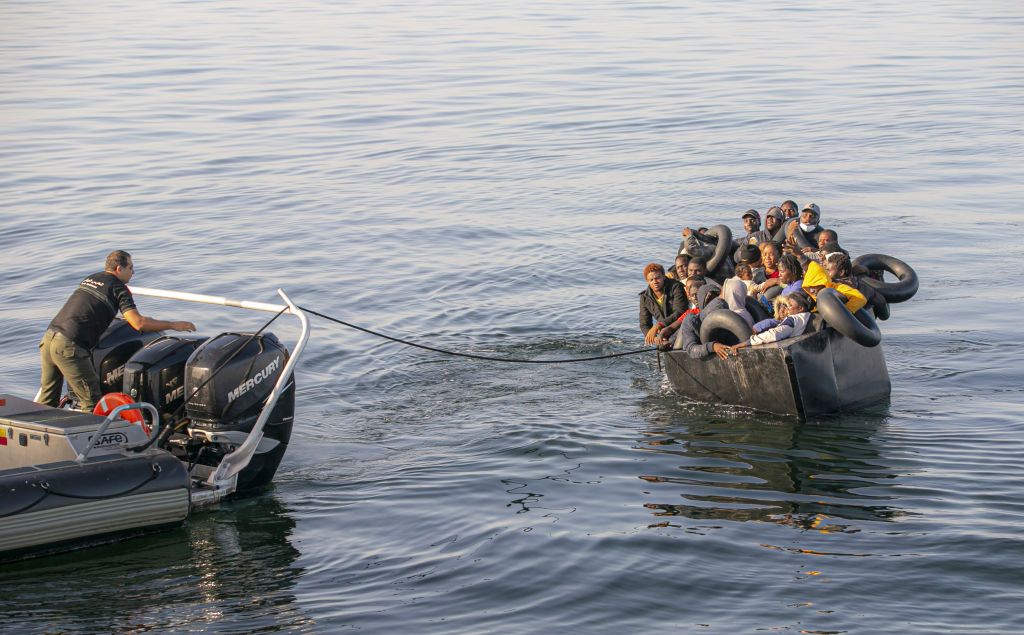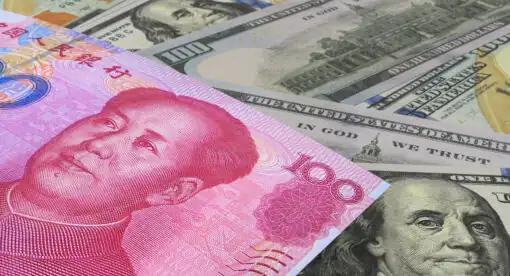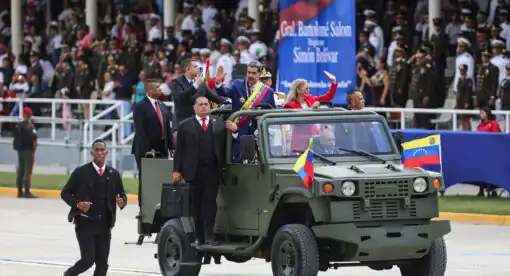Earlier this year, refugees and asylum seekers demonstrated outside UNHCR (U.N. High Commissioner for Refugees) headquarters in Tunis demanding to be evacuated out of Tunisia. The protests, which lasted for several months, revealed just the surface of a deeper migration management crisis that continues to threaten the human security, dignity, and mental well-being of refugees residing in Tunisia. To help ease the crisis, the United States should focus its attention on two things: alleviating human suffering by reducing the risks migrants in Tunisia and North Africa face and mitigating the potential burden a migration surge from Tunisia could place on its European allies’ already stretched asylum system.
Tunisia has traditionally been a country of emigration because of factors like its political-economic conditions, high rates of unemployment, and political disenchantment following the Arab Spring. In addition, many refugees and asylum seekers, particularly those from sub-Saharan Africa, view Tunisia as a transit country – the final stop before reaching Europe.
Despite the growing number of refugees and asylum seekers in Tunisia, the country does not yet have a domestic legal framework for governing asylum and refugee issues. Consequently, refugee status determination is conducted solely by the UNHCR under its mandate, allowing the state to deal with refugee groups on an ad hoc basis, governed by geopolitical and diplomatic incentives instead of humanitarian considerations.
Tunisia was the birthplace of the Arab Spring and one of four countries to topple authoritarian leaders following a wave of protests throughout the region. Despite taking steps toward democratization, the country now faces an ongoing political and economic crisis that is leading more people to want to leave the country and threatening refugees’ security.
Tunisia’s Political Crisis
The current political crisis in Tunisia began on July 25, 2021, when Tunisian President Kais Saied issued an emergency declaration dismissing Prime Minister Hichem Mechichi, enacting a 30-day freeze on the work of parliament, and assuming all executive power, initiating a “self-coup.” He codified his actions in a presidential decree and used Article 80 of the 2014 Tunisian Constitution to back his actions by claiming he was preserving the identity and security of the country.
At first, Saied’s actions received popular support, as many Tunisians saw them as a path to prosperity and stability. However, throughout the past year, protests have swept the country against Saied’s actions, which have worsened social conditions and undone over a decade’s work toward democratic progress by establishing a one-man rule and entrenching an open dictatorship.
Democratization and Migration Policy
In 2020 and the first half of 2021, conditions in Tunisia were dire enough that migration from and through Tunisia rose to levels not seen since the months following the Arab Spring. The emigration of Tunisians soared in early 2011 as Tunisia’s security apparatus and border controls fell apart during the Arab Spring. More than 28,000 Tunisians arrived on Italy’s shores in the first half of 2011, compared to only 1,700 annually from 2000 to 2010. During this period, an exodus of more than 50,000 refugees from Libya crossed into Tunisia’s southeast region due to the civil war, a dynamic that has persisted at a smaller scale to this day.
Most of those leaving Tunisia in the months leading up to the current political crisis were irregular migrants motivated to leave based on an interplay of three ongoing crises: the COVID-19 pandemic, a rapid economic downturn, and pessimism about Tunisia’s political leadership.
In the decade following the Arab Spring, democratization did not lead to an expansion of migrant and refugee rights in Tunisia. Despite initial attempts to replace the restrictive policies inherited from the authoritarian regime of Ben Ali, Tunisia put liberal migration reform on hold as migrants’ demands for more rights clashed with European security interests and Tunisia’s domestic political agenda. Following Saied’s self-coup, refugees in Tunisia are experiencing high levels of poverty and discontent with the Tunisian government and the UNHCR.
Refugees and asylum seekers in Tunisia face unnecessary challenges when attempting to access protections like housing and health insurance that should be afforded to them by their registered status. Refugees in Tunisia don’t have rights that would normally be afforded to refugees in most other countries, and any financial aid is often administered after long delays. Furthermore, the refugees struggle to acquire economic stability by finding employment in Tunisia, as they are not allowed to work, apart from what the UNHCR calls “informal work.”
In February 2022, a two-month sit-in began outside of the UNHCR headquarters in Tunis. Refugees claimed they had been abandoned after a considerable reduction in UNHCR humanitarian assistance, including access to health care and accommodation, despite the rising numbers of those seeking protection in Tunisia, particularly women and minors. Many of the refugees protesting are registered in Tunis or the port cities of Sfax and Medenine. A quarter of refugees registered by the UNHCR live in or around Sfax, where the UNHCR confirmed it was shutting down its offices due to budgetary constraints.
Protesters constructed makeshift shelters along the pavement outside the UNHCR and stayed for two months until Tunisian authorities disbanded the protests and accused participants of obstructing the UNHCR’s work. The sit-in sought to draw attention to refugees’ living conditions and to call on the UNHCR to offer them resettlement in third countries. Many of the refugees come from countries in Sub-Saharan Africa and reported facing discrimination in the process of trying to acquire refugee protections.
A Mismanaged Asylum Process
The cause of transit migration by people through Tunisia can be linked to regional security threats associated with transit routes in other North African countries such as Libya and Algeria. Since the beginning of 2022, 87 percent of migrants who reported having passed through Libya affirm having experienced grave forms of violence such as acts of torture, sexual abuse, or violent treatment while in detention. Since the EU signed a deal with Libya to reduce the number of arrivals to Europe five years ago, over 82,000 people have been intercepted by the Libyan Coast Guard. This means an inflow of refugees and asylum seekers from Libya and Sub-Saharan Africa intending to embark to Europe are funneled through Tunisia.
Once migrants enter Tunisia, their prospects are limited. Asylum seekers lack protections, and many are unable to register their status due to long delays in processing times. This, in turn, contributes to issues like unemployment and lack of housing and health care. The Tunisian government also imposes fines on refugees based on the length of a person’s irregular stay in the country.
Due to processing delays from the UNHCR, some refugees have been stranded in Tunisia awaiting evacuation for five to seven years. Youth unemployment has skyrocketed to 40 percent, leaving people desperate to leave. The journey from Tunisia to Europe is filled with risks; more than 540 people either drowned or were reported missing after leaving Tunisian shores for Europe this year, up from 440 in 2021. According to statistics from the Tunisian Forum for Economic and Social Rights, the Tunisian coast guard intercepted 25,657 migrants attempting to cross the Mediterranean in 2021, almost double the number from the previous year. In 2022, two-thirds of migrants attempting to cross from Tunisia into Europe were caught. Once returned, migrants and refugees in Tunisia, particularly from Sub-Saharan Africa, regularly complain of being subjected to verbal and physical abuse.
The response to migration out of Tunisia is eliciting intense securitization from Tunisian authorities, with waves of arrests and the “militarization” of border areas taking place. All the while, the mental wellbeing of refugees and asylum seekers, particularly youths, is worsening and going largely ignored. In some U.N. refugee facilities, refugees are taking their lives due to the absence of adequate care and desperation over lack of resettlement.
Unregulated migration into Europe is forecast to continue rising through 2023. The first wave of people indirectly affected by the war in Ukraine due to food and fuel shortages is now emigrating to Europe and will be followed by larger waves as the interplay of a humanitarian and energy crises worsens this winter. Aside from migration as an effect from the war in Ukraine, the EU has seen increased migration flows along several routes in the first half of 2022, including the Western Balkans (up 191 percent from last year), the Eastern Mediterranean (up 125 percent) and the Central Mediterranean (up 23 percent).
These migration surges into Europe are heating up disagreements across the continent. Since 2015, countries such as Hungary, Austria, and Poland have refused to assist frontline states such as Greece, Italy, Malta, Cyprus, and Spain in processing, paying for, and settling asylum seekers from the Middle East and North Africa. “The Ocean Viking affair” – a dispute earlier this year between France and Italy over the destination of a migrant ship in the Mediterranean – represents the political fallout and tensions involved in migration management in Europe. The EU’s Internal disputes over migration are politically salient as Europe heads toward a period of uncertainty over the next few years regarding energy, inflation, and security. Renewed challenges will arise over migration from the Mediterranean, and the latest version of the EU’s 2020 migration pact lacks unanimity.
Policy Recommendations
While Europe grapples with its internal disputes over migration, the United States must focus its attention on alleviating the risks migrants in Tunisia and North Africa face. The United States should continue to support Tunisia as it lays the foundation for political stability and economic prosperity, specifically with efforts to strengthen civil society and empower youths – the main demographic trying to leave due to high levels of unemployment. Migrants in Tunisia are subjected to a variety of risks, including deportation and restricted access to services mostly due to the absence of a formal national asylum system. By supporting economic reform that can create jobs, the U.S. can help refugees and asylum seekers in Tunisia see a sustainable future for themselves there.
Those stranded in Tunisia should be provided with urgent aid, including basic life necessities, and their inalienable rights should be respected without regard to any other considerations. Many of these refugees have faced traumatic journeys. A scale-up of mental health services in Tunisia is necessary, and the U.S. and humanitarian organizations should support inclusive policies that allow all refugees to access to the labor market, the health system, and a path to legal residency.
Improving the situation for refugees and asylum seekers in Tunisia benefits the United States’ European partners by decreasing the number of refugees fleeing there. As the EU continues to face escalating migratory pressures, it is necessary for the United States to act as a force multiplier in addressing this endemic crisis and the enduring political and socioeconomic challenges that come with it. An approach centered around humanitarian principles not only benefits vulnerable refugees and displaced persons in Tunisia but also will strengthen the U.S.-EU security apparatus by tackling the growing challenge of increased migration to Europe in partnership.
Alice Hickson is an Analyst for the Power Vacuums program in the Human Security unit at the New Lines Institute. She studied in Jordan where she conducted independent research for her thesis on Palestinian refugees and the right of return. Alice holds a Bachelor of Arts in International Relations and Middle Eastern Studies from Tufts University. She tweets at @_AliceHickson.
The views expressed in this article are those of the author and not an official policy or position of the New Lines Institute.






